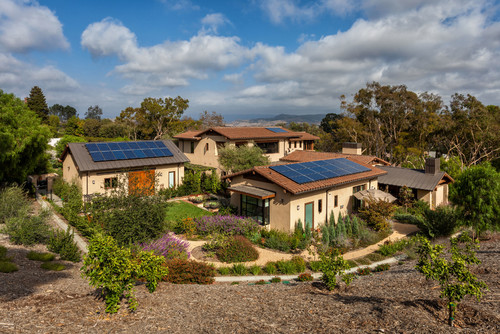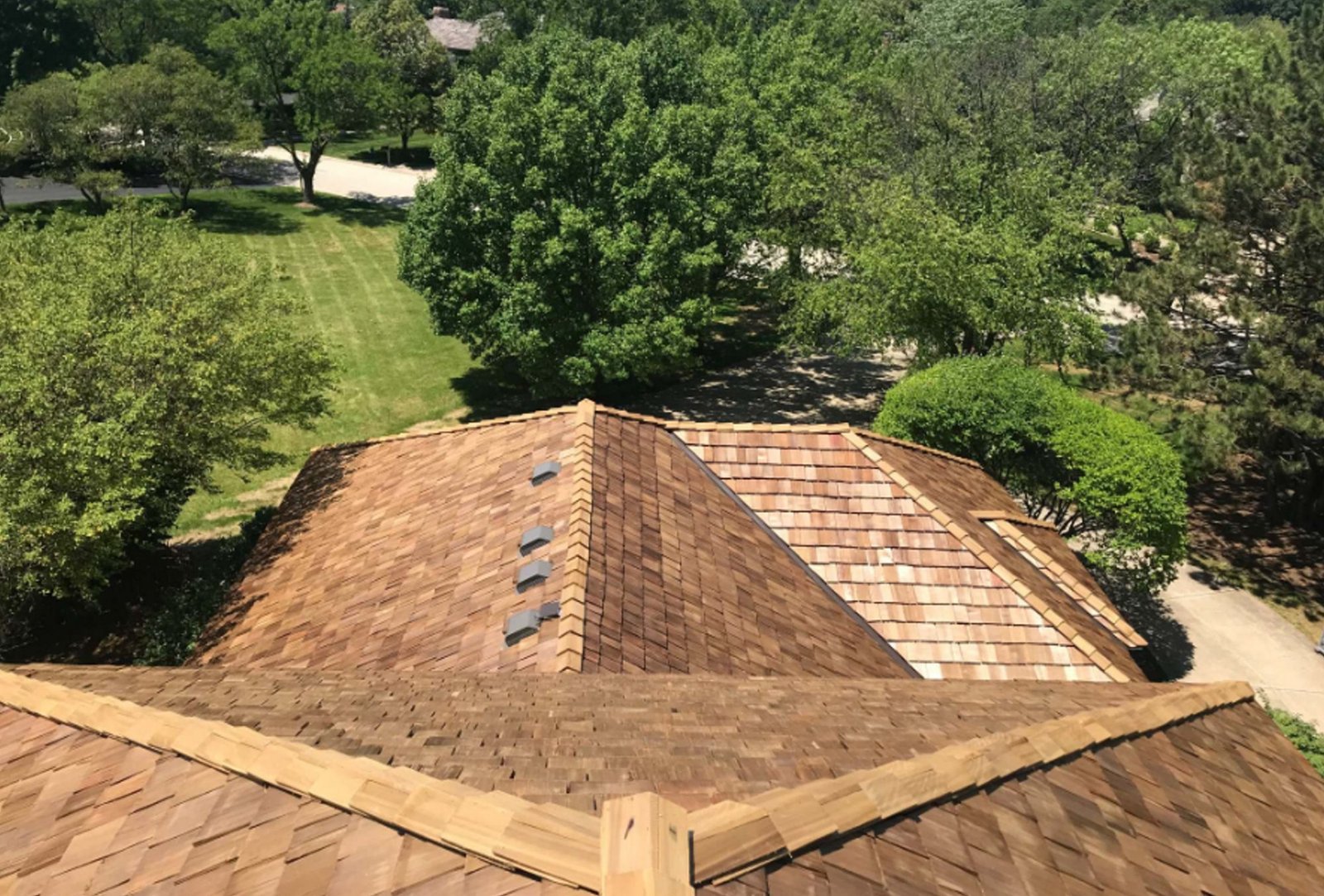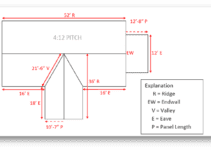In our days the benefits of home solar power are each day clearer to people, governments and businesses. Solar power is an energy that does not require raw materials, isn’t polluted and is renewable.
There are growing concerns about increasing energy prices and the environmental impact of burning fossil fuels. In the last time many households are turning to solar energy. The solar power can be captured through solar panels. Generally speaking solar panels are arrays of photovoltaic cells made by silicon.

Photo by GRADY-O-GRADY Construction & Development, Inc. – More exterior home ideas
Photovoltaic cells can convert the sunlight into energy, and this energy can be used to pump water, light homes and run appliances. There are two main types of solar panels currently used: solar panels used for heating and solar panels that use solar cells to produce electricity. Solar panels do not produce energy at night, although some manufacturers say they do it. If so that is much lower than that obtained in the daily light.
Maybe in the future to obtain energy from sun during the night will be possible. You should know during the night it isn’t really dark. The Earth absorbs solar energy during the day and then at night is radiating infrared rays.
Some U.S. scientists claim to have managed to capture the infrared through microscopic antennas, and they are confident that these antennas can be used for the next generation of solar panels.But for the moment the price of this kind of solar technology with nano antennas is exorbitant. Maybe in 10 years we will have a worthy alternative energy source to take into account.
However solar panels can be a great investment that not only saves you money and increase the value of your property, but also helps our environment. And something else: Solar power is fast becoming price competitive with conventional energy sources.
In the last years the cost to put solar panels on your home have dropped over 40%. Think about it. Complete systems for hot water, consisting of collectors (4 – 9 m), hot water tanks, connecting pipes and control could save around 2,000/year to 2,600 kwh/year of energy = 200 -260 liters of oil. In other words two third of the required hot water energy is supplied by the sun.
Solar panels can be mounted on a rooftop or maybe on a freestanding rack, ideally in an area that receives sun throughout the entire day (South side). Light strikes a photovoltaic cell, and is absorbed in a semiconductor made by silicon. The energy knocks electrons loose, allowing them to flow freely, as a current, through a wire that is run from the solar panel to a solar charge controller and then (via a wire) to a cycle battery bank, which stores the power for household use.
The solar panels will recharge all the time the batteries when the power will be used.
Roof Solar Shingles Incredible Benefits – Review and Tips (howtobuildahouseblog.com)
And you know what is amazing ?
Individual homeowners could sell excess energy generated by home solar panels back to electric company. This is a principle called net metering and when it is no power usage in the home, the electric meter runs backwards, supplying power into the power grid. In conclusion these solar panels used to produce electricity are really interesting because YES: We have free and clean electricity.
On the other hand solar panels used for heating are less important. The operation is simple: Panels capture solar heat and transfers it through a stream of water pipes. Water is heated and can then be used or stored for use. Maybe we can find these systems advantageous in places where no other means of heating does not require the use of electricity.
They are environmentally friendly but they are expensive and they can be used only in summer. Almost half of installed solar collectors in Switzerland are used in these systems. They generate heat for space and hot water.
The major expense of home solar power is incurred at installation. In North America and Europe we can purchase solar panels from a variety of solar panels producers or we can buy online, from a wide variety of retailers such as www.pvpwer.com.
For the technical and ecological success is to combine the conventional system with the solar panel system. This requires good collaboration between the architect and planners, installers( maybe an electrician) and solar system supplier.
And we do not have to forget that the wisest financial investments begin with knowledge and solar energy is no different. To remind solar panels are typically installed on rooftops, building tops, or stand – alone facilities.
It is vital to install our solar panel so that gets the most direct sun exposure, to be maximally effective year round. Solar panels perform at optimum when they are placed in direct sunlight, the position of our photovoltaic array has to be under the noontime sun for maximum efficiency. We need to remove all the items or trim branches that may be block sunlight to the solar unit.
Due to the low voltage of an individual solar cell (cca. 0.5v), several cells are wired in series of a “laminate”. The laminate is assembled into a protective weatherproof enclosure, thus making a photovoltaic module or solar panel.
Solar panels systems release zero emissions into the atmosphere, require little or no maintenance and during the time we can add another panels to the system to increase the power output. When the sun shines the energy is freely available but we sill can harvested from batteries on cloudy days.
The solar panel system does not need any repairs or services for 25 years. Solar power has become increasing practical over the last several years. It has gone from a relatively expensive source of electricity to a reasonably economical one. Perhaps the greatest advantage of solar power is quite simply the inexhaustible supply.We don’t need to worry that the sun is going anywhere!
There may be times that you generate less electricity than you need, and thus still need to rely on the power grid, but other times you may be able to sell your excess. and the technology of solar power generation is steadily advancing, making it more and more practical as time goes by.


